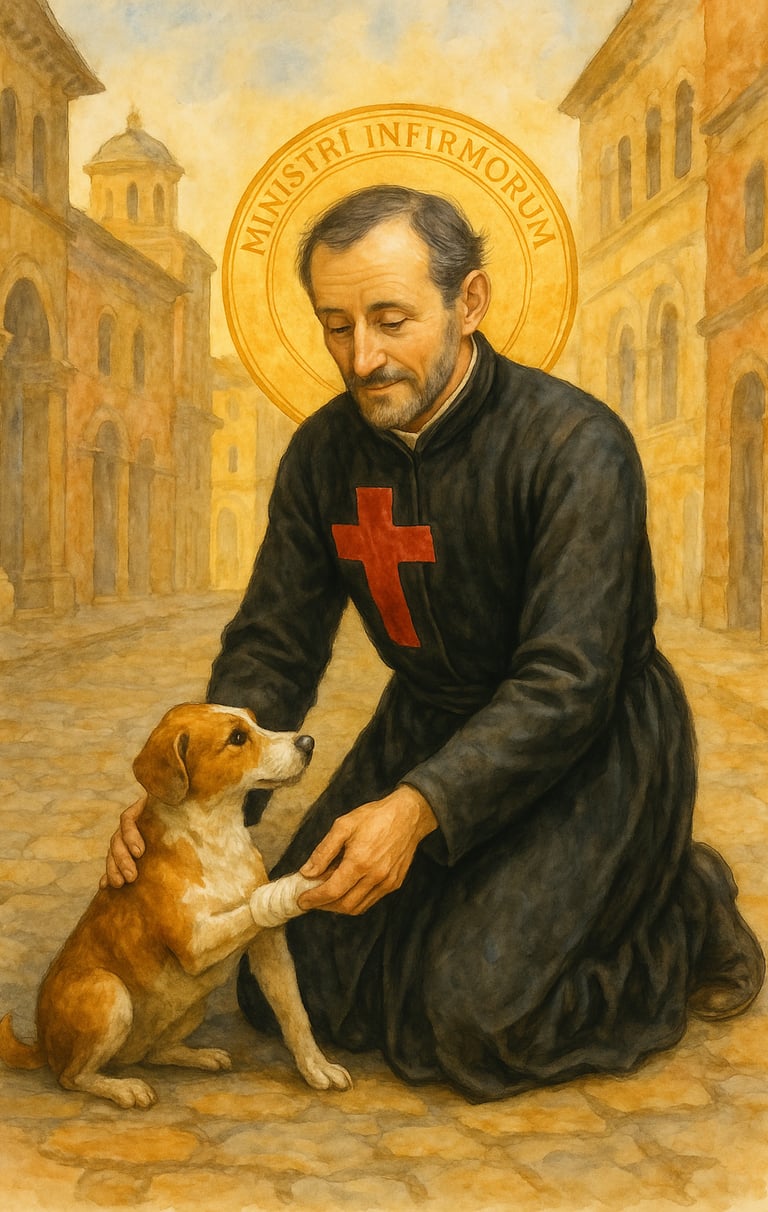From Gambler to Guardian: The Conversion of St. Camillus de Lellis
A Story of Mercy, Wounds, and Redemption
Halo & Light Studios
7/13/20252 min read


Click Link for a reel of Daily Dose of Saints and Faithful Art:
https://youtube.com/shorts/6L2TW6_lCj8
By every worldly measure, Camillus de Lellis should have been lost. Born in 1550 to a nearly 50-year-old mother and a soldier father who drank, gambled, and wandered from army to army, Camillus inherited chaos. He was violent, stubborn, and reckless—and by nineteen, had tasted every sin the world had to offer. With a festering leg wound and nothing to his name but a love of cards and a soldier’s grit, he gambled away even his sword and coat in a back alley.
Yet this broken man would become one of the greatest apostles of mercy the Church has ever known.
It started, as it often does, with hunger. Homeless and desperate, Camillus begged for food and was given work at a monastery. There, among humble stone walls and echoes of prayer, something stirred—a memory of his mother’s faith, and a quiet invitation from God. He began to work hard. He fought the pull of temptation. For the first time, he chose discipline over despair.
Later, when he returned to the hospital in Rome where his leg had once been treated, they took him back—not just as a patient, but as a servant. For four years, he scrubbed floors and fed the sick. Something had changed: the more he gave himself away, the more whole he became. His leg healed. So did his soul.
He gathered men to help serve the forgotten—plague victims, the dying, those left to rot. Eventually, he was ordained a priest, and founded a religious order: the Ministers of the Sick ot the Camillians, who took a fourth vow—to serve the sick even at the risk of death. He became a familiar face in Rome’s slums, lifting the dying in his arms, weeping with them, praying with them.
One day, he found a wounded dog in the street. As he wrapped its leg in bandages, he smiled and said, “I too, once had a bad leg.” That was Camillus—never forgetting the pit he had been pulled from, always giving thanks for the grace that found him.
He died in 1614, a saint who had once been a sinner, known not for sermons but for service. His life is a mirror for anyone who thinks they are too far gone.
“Think well. Speak well. Do well. These three things will make a man go to Heaven.” — St. Camillus
May we learn from his wound-healed hands that nothing is too broken for God to heal—and that love for the sick is love for Christ Himself.
